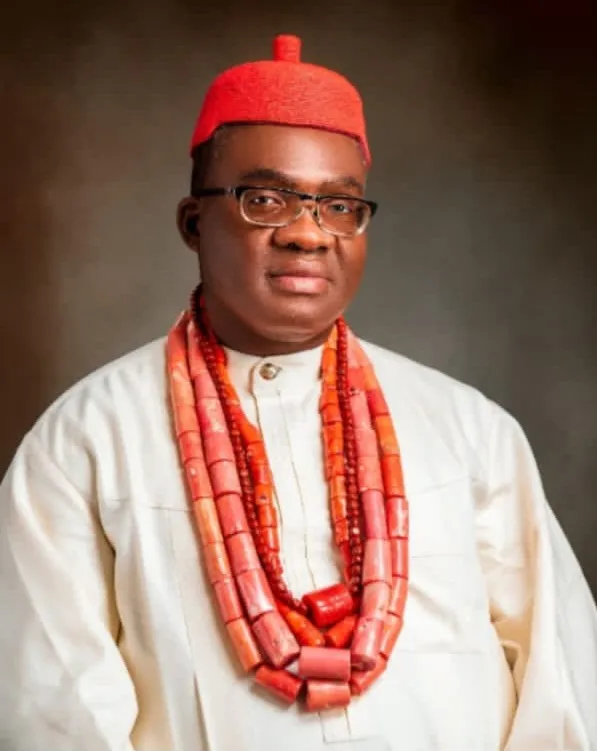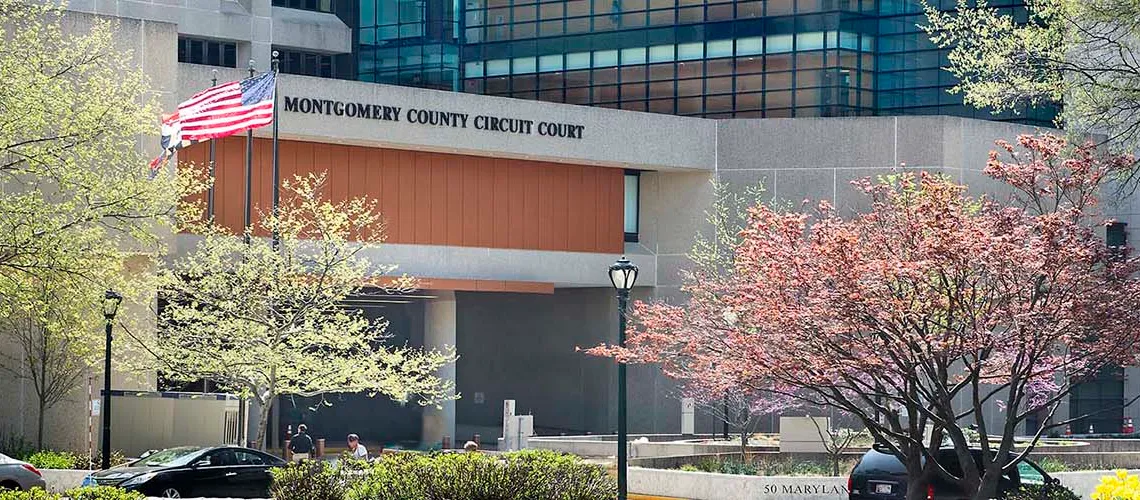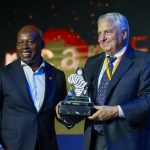...To get all news updates, Join our WhatsApp Group (Click Here)
Also Join our WhatsApp Channel (Click Here)
When Ifechukwude Okonjo emerged as the Obi of Ogwashi-Uku in Delta State in September 2019, there was no indication that he had been convicted of a crime in the US.
Ogwa-Uku is a community in Anaocha South Local Government Area of Delta State, Nigeria’s South-South.
Mr Okonjo succeeded his father, Chukuka Okonjo, a professor whose death was announced on 13 September 2019.
Findings by PREMIUM TIMES showed that he was crowned days after the death of his father.

Conviction in the US
According to court documents obtained by PREMIUM TIMES, Mr Okonjo was convicted of theft in April 1997 at the Circuit Court for Montgomery County, State of Maryland, in the US.
The court documents showed that his younger brother, Onyema Okonjo, was also convicted of a similar offence on 23 January 1998.
Charges, arraignment and trial
Mr Okonjo was first criminally indicted on 20 April 1995 and summoned to appear before a judge the following day.
After initially failing to make his appearance on 12 August 1995, he finally showed up at the court on 14 July of this same year.
He was initially charged with theft and conspiracy to commit the crime with his younger brother, Onyema.
Specifically, the first count charge indicated that Mr Okonjo stole “assorted computers and computer peripheral equipment, the property of Digital Equipment Corporation, having the value of $300 or greater” between 23 January 1995 and 24 March 1995 in Montgomery County, Maryland.
According to the court document, the offence violated Article 27, Section 342 of the Annotated Code of Maryland and was against the peace, government, and dignity of the US state.
He was released on bail on “personal recognisance” after paying a $2,500 bail bond.
Then unemployed and single, Mr Okonjo resided with his elder sister, Ngozi Okonjo, at 7004 West Greenvale Parkway, Chary Chase, MD 20815, in the US.
Ngozi Okonjo, now popularly known as Ngozi Okonjo-Iweala, has been the director-general of the World Trade Organisation since March 2021.
At the time of the trial, Mr Okonjo was 30 and had lived in the US for nine years. He is now 57.
His brother, Onyema, was criminally indicted by the court on 18 October 1996, and a bench warrant was issued against him the same day.
By then, Onyema was 28 years old and married; he is now 55. He made his first court appearance on 14 November 1997.
His charge indicated that he committed the crime of theft and conspiracy between 28 October 1993 and 24 March 1995 in Montgomery County, Maryland.
According to the court documents, he claimed to be homeless at the time.
Like his brother, Onyema was released on bail on “personal recognisance.”
Mr Okonjo and Onyema were told that the condition of their release was that they should appear in court during sittings or their bail bond would be forfeited.
They were also told that failure to surrender themselves within 30 days after the bail forfeiture might cause them to be further charged, fined and/or imprisoned.
Sentencing
Mr Okonjo and Onyema, after their bail, separately failed to appear before the court on hearing and trial dates, forfeited their bail bonds and also “willfully” failed to surrender themselves within 30 days after the forfeiture, according to the court documents.
One of the documents indicated that Onyema left the US after being granted bail.
The court then separately charged and found Mr Okonjo and Onyema guilty of failing to surrender themselves within 30 days of their bail forfeiture.
Consequently, the court, on 29 April 1997, sentenced Mr Okonjo to six months imprisonment.
For the first count of theft of assorted computers worth $300, the court also sentenced Mr Okonjo to one-year imprisonment beginning from 4 April 1997, when the judgment was delivered.
The court documents did not indicate if the sentences were to run concurrently.
Similarly, the court, on 23 January 1998, sentenced Onyema to 57 days imprisonment.
It is unclear if Mr Okonjo and Onyema served their jail terms in the US or ran back to Nigeria, given that they had jumped bail before their conviction.
Honoured in Nigeria
In 2019, after their father’s death, Mr Okonjo and Onyema joined other princes in the contest for the traditional stool of the Ogwashi-Uku Community.
The community residents were unaware that the duo had been convicted of theft in the US.
After the contest, Mr Okonjo emerged as the community’s traditional ruler and was crowned days later.
He is now the Obi of Ogwashi-Uku, the highest traditional authority in the community.
Petition to the SSS
The conviction of Mr Okonjo and Onyema im the US became public knowledge after some community members obtained certified true copies of the court judgment.
Some members of the community subsequently petitioned the Delta State Government and the State Security Service (SSS) and accused Mr Okonjo of engaging in land grabbing, illegal arms dealings, harassment of indigenes, and formation of armed militia groups, among others.
The petition to the SSS, dated 4 October 2024 and addressed to the SSS director-general, was authored by F.O. Okolie, a law firm, on behalf of some community members.
The community members on whose authority the petition was authored included Chiedu Enwenwa, Hyacinth Okolie, Ellen Adigwe and Bruce Ugo Emordi.
In the petition, the community members claimed that Mr Okonjo, Onyema and others recruited some unnamed gunmen from South-east Nigeria into the community’s vigilante security outfit.
They alleged that the recruited gunmen were being used to forcefully take over people’s landed property and also to commit violent crimes such as kidnapping and murder.
They also claimed that the duo and others were using police operatives to intimidate community members, alleging that the issue had earlier been reported to the police authorities in Nigeria and that no action had been taken.
They expressed fear that, given the current tension, the community was on the verge of being thrown into war and a breakdown of law and order.
The community members, in the petition, appealed to the SSS to investigate all the community vigilante groups and palace guards as well as the alleged kidnap and murder of some indigenes of the community.
They also called for an investigation into Mr Okonjo’s alleged “illegitimate dealings in prohibited firearms” allegedly imported into the community by gunmen.
Palace speaks
On 31 October, a PREMIUM TIMES reporter contacted Ifeakanachukwu Emordi, Mr Okonjo’s palace secretary, to seek to speak with the traditional ruler about the allegations.
After dismissing Mr Okonjo’s conviction for theft as untrue, Mr Emordi promised to get the traditional ruler to speak with our reporter on the phone.
Minutes later, Onyema phoned our reporter and claimed, without evidence, that the petitioners were not representatives of Ogwashi-Uku.
Regarding the allegations of land grabbing, he claimed that all lands in Ogwashi-Uku are held in trust by the traditional ruler in accordance with the community’s traditions and customs.
“That’s our land tenure system. Obi doesn’t have to grab any land that is under his custody,” he said.
He said the SSS should be allowed to investigate the allegation of recruiting gunmen into the community’s vigilante groups and harassment of indigenes.
When quizzed about the conviction of the traditional ruler in the US, he responded, “We are not aware of that.”
Our reporter again requested to speak with the traditional ruler. Onyema promised to inform the traditional ruler and revert. But he did not get back to the reporter.
When contacted again on 6 November, nearly a week after, he claimed Mr Okonjo was busy and not available to speak on the issues.
Onyema said he might get another person to respond before the end of the week if the traditional ruler remained unavailable.
When our reporter informed him that court documents shows that he too was convicted in the US, Onyema retorted, “I can’t speak to all of these issues.”
“We will get back to you to try to clear the air as far as any of these issues are concerned,” he added.
Commission of enquiry
In response to the petition, the Delta State Government set up a commission of enquiry to investigate the allegations against the traditional ruler, particularly on land-related issues.
The commission is expected to begin a public hearing on Thursday and conclude it on 20 November 2024, according to an announcement from the Secretary to the commission, Gabriel Eze-Owenz, a lawyer.
SEE COURT DOCUMENT BELOW
SOURCE: PREMIUM TIMES
You can get every of our news as soon as they drop on WhatsApp ...To get all news updates, Join our WhatsApp Group (Click Here)
Also Join our WhatsApp Channel (Click Here)

















